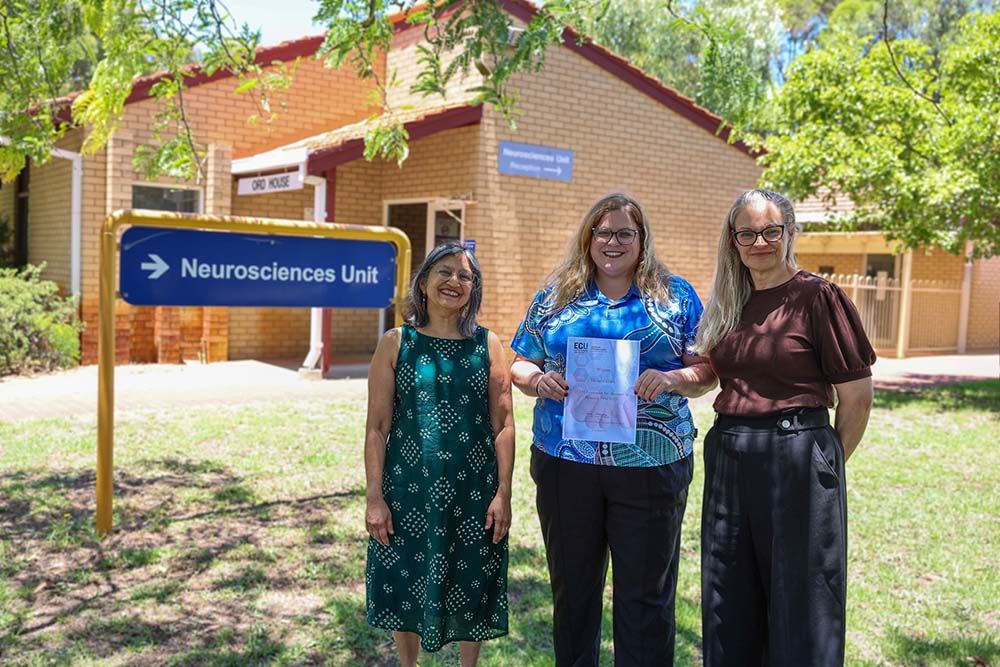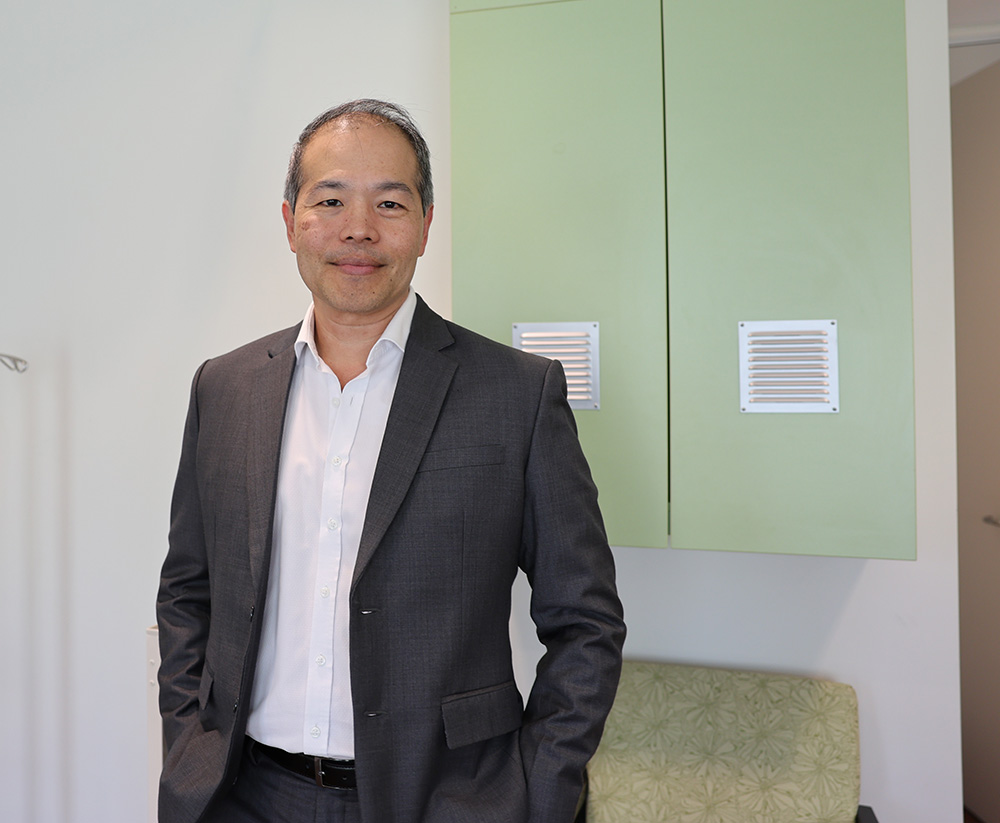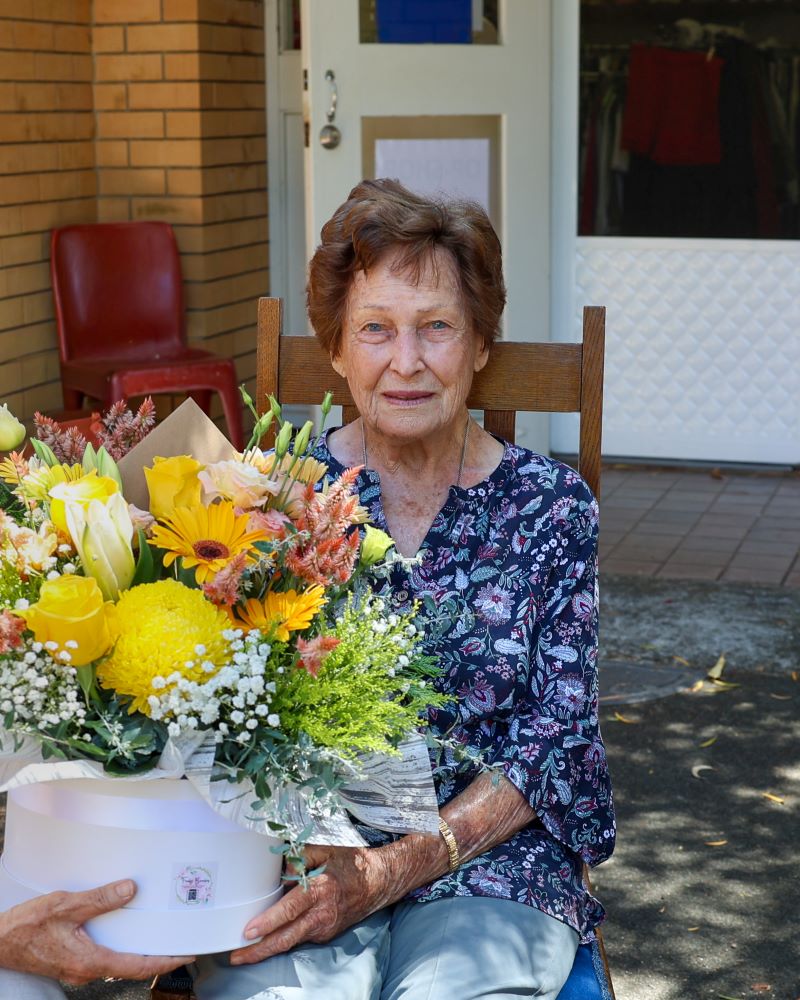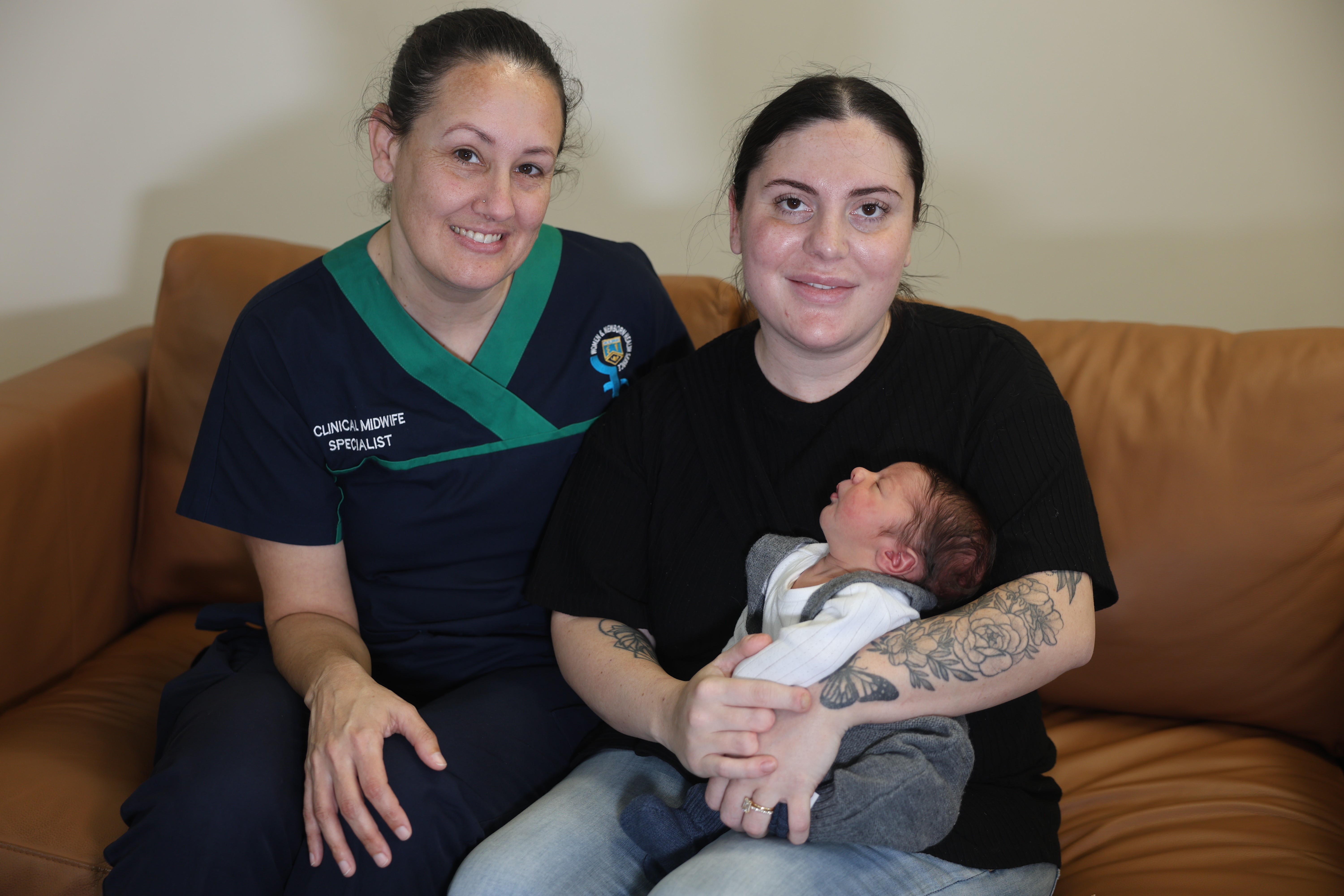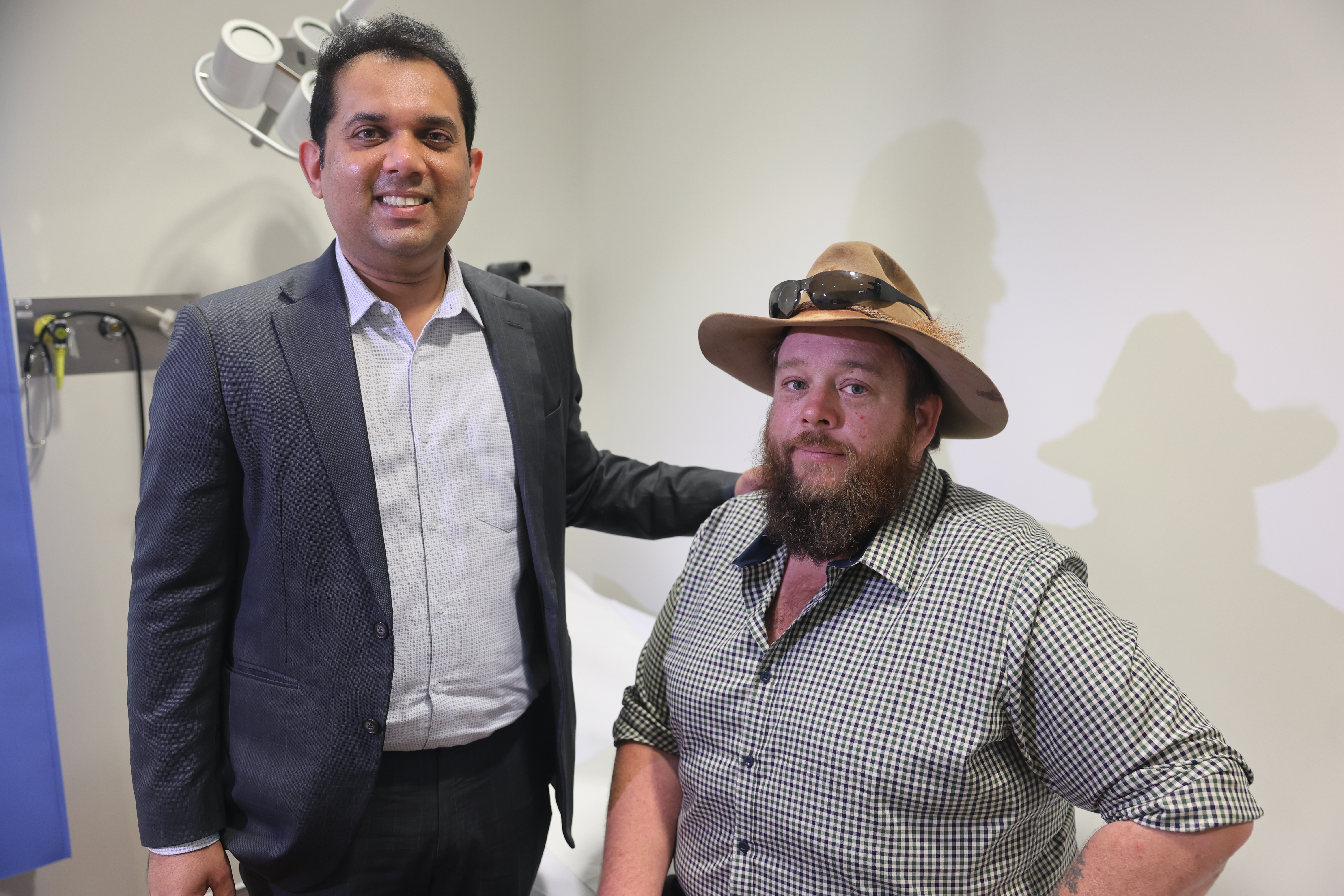Latest News
More News
-
 Abbie explains how career progression is a focus at SCGH 10 November 2025 With a range of nursing opportunities currently available at Sir Charles Gardiner (SCGH) and Osborne Park Hospitals (OPH), Abbie shares what she loves about working as a newly-qualified nurse for the organisation. After completing her final student placement at SCGH, Abbie was offered a position on the same ward as a newly qualified registered nurse at the beginning of 2024. "I have received continuous support from the team and really feel this was essential in my career progression," Abbie said. With guidance of the team, Abbie was able to complete further training such as Hospital Advanced Life Support within her first year of her qualification, which allowed her to obtain crucial skills. "These opportunities have laid the foundation for my continued professional development and progression towards senior nursing roles within the ward," she said. "Working at SCGH has not only provided ...
Abbie explains how career progression is a focus at SCGH 10 November 2025 With a range of nursing opportunities currently available at Sir Charles Gardiner (SCGH) and Osborne Park Hospitals (OPH), Abbie shares what she loves about working as a newly-qualified nurse for the organisation. After completing her final student placement at SCGH, Abbie was offered a position on the same ward as a newly qualified registered nurse at the beginning of 2024. "I have received continuous support from the team and really feel this was essential in my career progression," Abbie said. With guidance of the team, Abbie was able to complete further training such as Hospital Advanced Life Support within her first year of her qualification, which allowed her to obtain crucial skills. "These opportunities have laid the foundation for my continued professional development and progression towards senior nursing roles within the ward," she said. "Working at SCGH has not only provided ... -
 Consumer involvement in stroke research 07 November 2025 Carers and stroke survivors have played a key role in helping develop and launch research into the effectiveness of an artificial intelligence (AI) platform to provide peer support for stroke survivors. Feedback from consumers and carers about the power of peer support in recovery from stroke inspired this study, according to the research team leading the project. One of the carers involved in the co-design of the project, Nichola Browning, said peer support makes such a positive difference to someone recovering from a stroke, their carers, and families. Nichola became a carer following her daughter’s stroke six years ago and is passionate about supporting other stroke survivors. “Peer support helps connect survivors with people who really understand how you are feeling and the challenges faced,” said Nichola. “Finding purpose through lived experience is empowerin...
Consumer involvement in stroke research 07 November 2025 Carers and stroke survivors have played a key role in helping develop and launch research into the effectiveness of an artificial intelligence (AI) platform to provide peer support for stroke survivors. Feedback from consumers and carers about the power of peer support in recovery from stroke inspired this study, according to the research team leading the project. One of the carers involved in the co-design of the project, Nichola Browning, said peer support makes such a positive difference to someone recovering from a stroke, their carers, and families. Nichola became a carer following her daughter’s stroke six years ago and is passionate about supporting other stroke survivors. “Peer support helps connect survivors with people who really understand how you are feeling and the challenges faced,” said Nichola. “Finding purpose through lived experience is empowerin... -
Aboriginal maternity care providing a strong start in life at KEMH 06 November 2025 King Edward Memorial Hospital is proud of its Aboriginal Maternity Group Practice, which provides culturally appropriate models of maternity care for Aboriginal families at King Edward Memorial Hospital. Known as Ngangk Maawit Mia, or Mother Baby House, it ensures continuity of care with a dedicated team of midwives. It also provides non-structured drop-in breastfeeding clinics in a casual and relaxed setting. Since it was established in 2023, it has welcomed more than 200 babies into the world. Small but mighty, the team of six midwives is led by clinical midwife specialist and Ballardong Noongar woman Mel Lynch. “I always had a passion for continuity of care and for Aboriginal healthcare,” Mel said. Recognised for her drive and passion, Mel has won a NAIDOC award and WA Nursing and Midwifery Award in Aboriginal healthcare at the WA Health Excellence Awards, recognising the...
-
Astonishing results for patients with stage 4 rectal cancer 05 November 2025 Oncologists at Sir Charles Gairdner Hospital have seen astonishing results for two young patients with stage 4 colorectal cancer using immunotherapy drug Dostalimab. One of the patients is Brodie Sawyer who just six months ago was diagnosed with stage 4 rectal cancer. Amazingly after just six months of treatment on this specialised drug, Brodie is cancer free. “I was given an 80% survival rate with a guaranteed chance of losing my prostate and a permanent colostomy bag,” Brodie said. “It wasn't a very good feeling.” Medical Oncologist at SCGH Dr Rajiv Shinde said this immunotherapy is an option for those who have locally advanced rectal cancer with mismatched repair deficiency. “Ongoing research has shown promising results associated with improved clinical outcomes for these patients,” he said. The immunotherapy activates the body's own defence system...
-
 Leading the way for consumer engagement 30 October 2025 As a consumer and carer representative for more than five years Jenny Bedford has been appointed to the North Executive Team Safety, Quality and Consumer Engagement Committee. The committee assists the NMHS Board in monitoring and fostering safety, quality and consumer engagement in patient care. Jenny is leading the way for consumers at North Metropolitan Health Service and said her personal experience as a carer drives her consumer representative work. “My passion and drive to be a voice and advocate for those who cannot is inspired by my role as a fulltime carer to my young adult daughter, who has intellectual and psychosocial disabilities,” she said. “I want to help make much needed changes for more person-centred care that are inclusive, safe and deliver better outcomes.” Continuing to drive change and knowing her voice is truly making a difference fuels...
Leading the way for consumer engagement 30 October 2025 As a consumer and carer representative for more than five years Jenny Bedford has been appointed to the North Executive Team Safety, Quality and Consumer Engagement Committee. The committee assists the NMHS Board in monitoring and fostering safety, quality and consumer engagement in patient care. Jenny is leading the way for consumers at North Metropolitan Health Service and said her personal experience as a carer drives her consumer representative work. “My passion and drive to be a voice and advocate for those who cannot is inspired by my role as a fulltime carer to my young adult daughter, who has intellectual and psychosocial disabilities,” she said. “I want to help make much needed changes for more person-centred care that are inclusive, safe and deliver better outcomes.” Continuing to drive change and knowing her voice is truly making a difference fuels...
Last Updated:
18/10/2023


